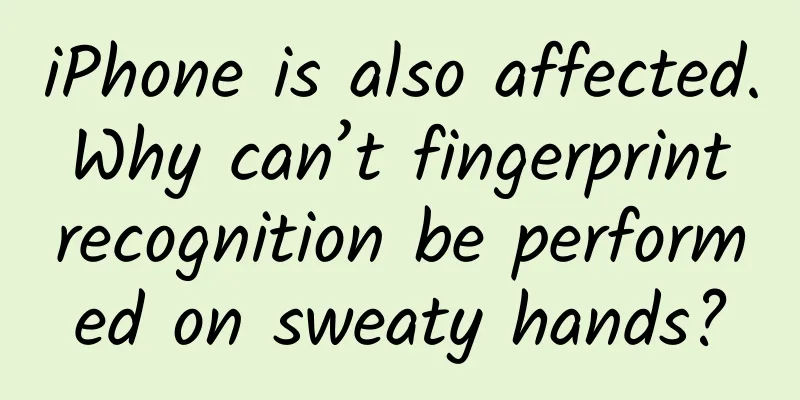When you are performing your “inner drama”, who is dubbing for you?

|
When you are thinking about the ultimate question of mankind, "What to eat today?", can you hear the voice in your head? One voice says, "Let's have hot pot and milk tea, treat ourselves", and the other voice says, "No, let's continue to eat the diet meal". It's like a white angel and a black angel whispering in your ear, but you find that no one around you hears this heated argument. Could it be that... you have accidentally learned the language of angels? Source | Author 1. How do voices in your head come about? Stop! In fact, the appearance of voices in the brain is a very common phenomenon. As early as the 1930s, this problem has been noticed. Here we have to mention a person, known as the "Mozart of psychology" - Levi Vygotsky (former Soviet developmental psychologist), who called this voice "inner language." He observed that children of a few years old always liked to talk to themselves when playing games, and if you listen carefully to what they say, you may find: Wait, this is actually a conversation! Source: pexels When people grow up, they will transform this kind of vocal conversation into a silent conversation in their heads, so he believes that the voices in people's heads are actually formed by humans constantly "internalizing" external social conversations. However, due to the limitations of science and technology at the time, this theory could only become a hypothesis. With the advancement of science, neuroscientists have discovered that when people hear sounds in their brains but do not speak, an area of the brain related to speech, the Broca's area, is activated, as if they really hear us speaking. Source: Wikipedia That is, the sound in the brain can be understood as a "copy", which is actually called a "corollary discharge". 2. What is corollary discharge? Scientists represented by Von Holst (German physiologist) and Sperry (American neurobiologist) discovered that when we perform an action, the brain not only sends a nerve signal to the muscles, but also instructs the "primary motor cortex" to copy and transmit this signal to other brain areas (mainly the cerebellum and parietal lobe) at any time. This copied signal is the accompanying discharge. Source: pexels So why do we need to copy signals to notify other brain areas when we do anything? You can think of it this way, you were originally a mute, but suddenly you started to speak, would others be scared to death by you? Similarly, the purpose of sending copies to other brain areas is to let other brain areas know your next move, so that you will not be scared by your sudden and unexpected actions. It's like a warning: "Ahem, all departments, pay attention, the leader will be here soon, get ready!" Source: pexels Another function of the transmission copy is that it can compare the quality of the action in real time, so that the action can be finely adjusted to improve efficiency. Generally speaking, people will ignore the sound of their heartbeats and will not deliberately pay attention to the direction of their eyeballs. This allows us to concentrate on dealing with things outside the body without being surprised by our every move. This is another benefit of the copy. Now you should understand the purpose of this copy, right? Of course, the copy also has some minor bugs. 3. The impact of language copy When you are talking to someone, you can think of it as the transcript saying what you want to say to others to yourself in advance. So, when you actually speak to communicate with others, in order not to cover up the voice of others with your own voice, the brain will use the transcript to actively lower the volume of your output voice, because the brain already knows what you are going to say anyway, so it thinks it is unnecessary to listen to you loudly again. This leads to two phenomena: When you speak loudly, you don't feel your voice is loud, but people look at you. Sometimes you make a mistake when you speak, but because your brain receives the correct copy in advance and automatically lowers the volume of your speech, you may not realize that you made a mistake or it is not easy to find it immediately. Some people believe that schizophrenia patients are most likely driven crazy by the voice in their own head because they do not understand that the source of this voice is themselves rather than outside the body, so they mistakenly think the voice in their head is someone else talking, thus causing "split". Source: pexels The voice in the head, that is, the language transcript, is also closely related to our ability to read silently. Scientists believe that those who have dyslexia cannot produce transcripts, that is, they cannot hear the voice in their heads, so they cannot read silently. Source: Unsplash In summary, scientists speculate that when people are engaged in abstract thinking, our thoughts are often verbalized, and after being verbalized, "corollary discharges" are immediately triggered. In this case, even if we do not speak, our auditory system will still receive this "copy", that is, we "hear" the sound. Obviously, if the speculation is true, then the voice we hear when we think can only be our own. Well! This is the end of this issue. Do you think we have learned some strange knowledge? |
<<: Love of mathematics: the extraordinary genius Galois and his beautiful theory
>>: Zhoushan's thrilling "blood-red sky" has become a hot topic! Is it a UFO landing?
Recommend
Nvidia accuses Qualcomm and Samsung of infringing its graphics processing technology patents
Chipmaker Nvidia said on Thursday it has sued riv...
7 cases of strategic product operations!
In practice, product operators often face many pr...
I love you, China!
Sunrise in the East Knock on the Sky File photo: ...
The most romantic thing I can think of is looking up at the stars with you...
"The stars are twinkling, the moon is round....
Where can I taste tea in Kunming? 2022 Kunming Tea Drinking Selection High-end Club Venue
Where are the places to taste tea in Kunming? 202...
What are the characteristics of a pua man, and what does online PUA mean?
Recently, the topic of PUA has once again become ...
How to create a hit product? Three essential points!
The reasons behind the popularity of a product ma...
5G mobile phones are coming! Who will be the next Nokia?
"With 43 million analog mobile phone users, ...
Android N internal code name - New York Cheesecake
With the debut of the latest developer preview, t...
Mobile Assistant
Source code introduction Similar to 360 mobile as...
Internet TV becomes a hot topic at the two sessions: deep transformation of the industry is imminent
The 2014 "Two Sessions" are drawing to ...
Brand marketing strategy: random event marketing gameplay
This kind of random event marketing method has ne...
Why do some people always perform exceptionally well in the college entrance examination every year? Learn this secret and you can also excel
When you think of the college entrance examinatio...
What is the difference between server rental and hosting?
What is the difference between server rental and ...
How long does it take you to buy an iPhone X in 2018?
UBS released the 2018 Global Cost of Living Surve...









